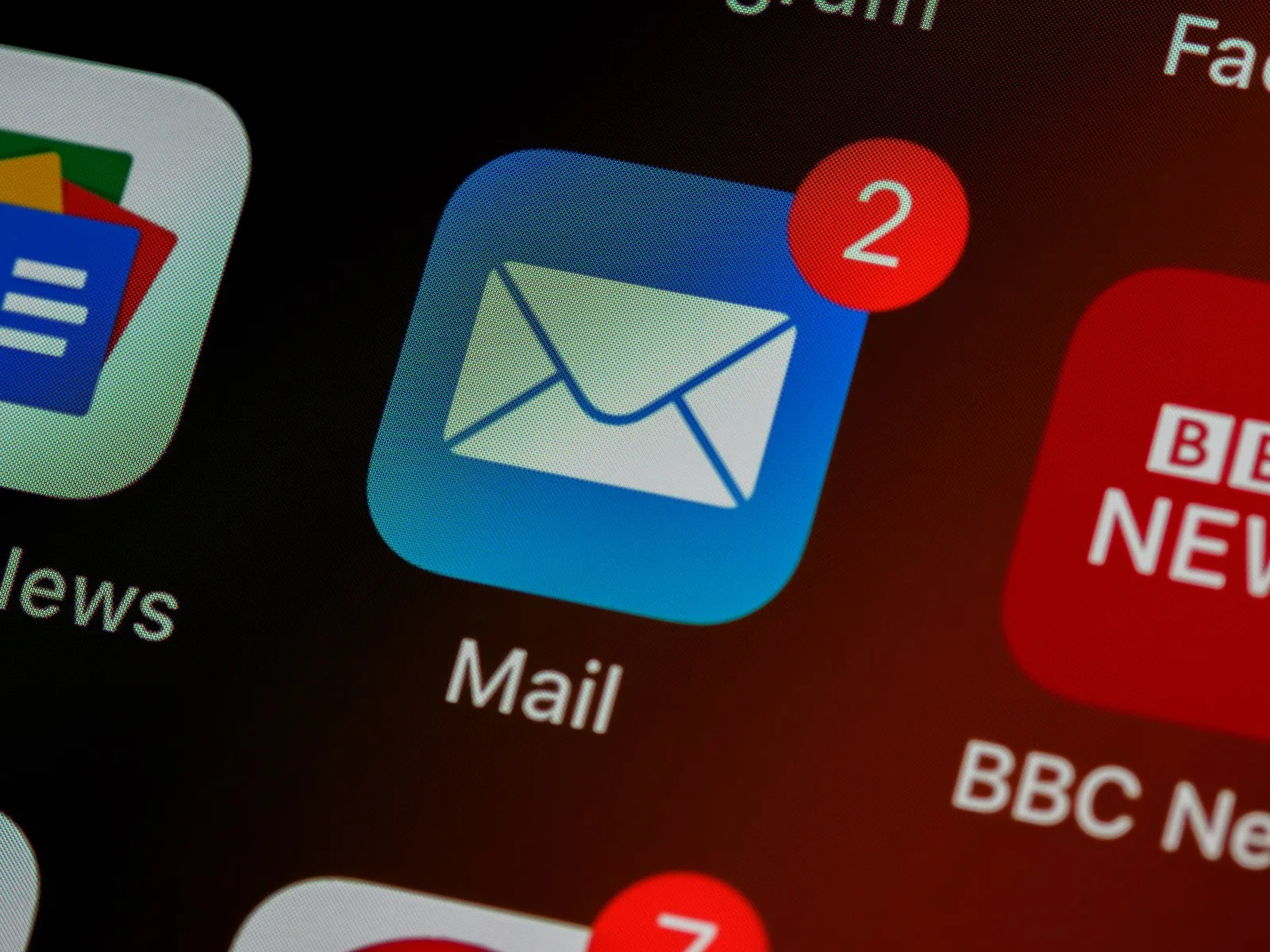When communicating with your professor through email, it’s important to maintain a friendly and professional tone. Your email should reflect your respect for their time and expertise. Here we will provide you with tips on how to address your professor, structure the body of your email, appropriate sign-offs, and important details that should be included. Then we will explore 15 sample emails to cover various scenarios.
How To Draft The Email | Effective Communication with Your Professor
Effective and professional communication with your professor can significantly impact your academic experience. Here’s how to structure an email to your professor, ensuring clarity, professionalism, and respect.
Addressing Your Professor
Start your email with a respectful salutation that includes their proper title and last name, such as “Dear Professor [Last Name],” or “Hello Professor [Last Name],” followed by a comma. It’s crucial to maintain a professional tone from the beginning; hence, casual greetings like “Hi” or “Hey” are not appropriate in this context.
The Body of the Email
State the Purpose: Clearly articulate the reason for your email in the opening sentence. If you are seeking clarification on an assignment, specify which assignment and what aspect is unclear.
Provide Necessary Details: Include relevant information such as course name, assignment title, and due dates to help your professor understand the context.
Be Precise and Direct: Avoid the use of jargon, slang, or acronyms that could be unfamiliar to your professor. Keep your language simple and your requests or questions straightforward
Organization: Structure your email in paragraphs, each addressing a single point. For multiple questions or requests, list them to enable an easy response from your professor.
Including Important Details
Ensure precision and clarity by mentioning all pertinent details related to your request. This includes:
- Specific course name or number
- Detailed assignment title or concept in question
- Relevant deadlines or dates
Providing these details helps your professor quickly understand and address your query. It reflects your preparedness and respects the professor’s time by streamlining communication.
Signing Off
Conclude your email with a polite and professional closing, followed by your name. Appropriate sign-offs include:
- “Best regards,”
- “Sincerely,”
- “Thank you,”
Avoid casual sign-offs in initial communications. Maintaining a formal tone is key until a different level of familiarity is established.
Important Details to Include
Your Full Name: Always sign off with your full name. If your email address does not clearly identify you, include your name in the email signature as well.
Additional Identification: If needed, include your student ID or the specific class section to further aid identification.
Spellcheck: Use Spellcheck to Catch Any Typing Errors.
Grammar Check: Review your email for any grammatical errors to maintain professionalism.
15 Email to Professor Samples
Here are 15 example email samples for various scenarios when emailing a professor:
- Email to Introduce Yourself:
Subject: Introduction – [Your Name], New Student in [Course]
Dear Professor [Last Name],
My name is [Your Name], and I’m excited to be joining your [Course Name] this semester. I wanted to take a moment to introduce myself and express my enthusiasm for the course. I am looking forward to learning from your expertise and contributing to the class discussions.
Thank you for your time, and I eagerly await the start of the semester.
Best regards,
[Your Name]
- Email to Request Office Hours Appointment:
Subject: Meeting Request
Dear Professor [Last Name],
I am currently enrolled in your [Course Name] and have a few questions regarding the course material. Would it be possible to schedule a brief meeting during your office hours this week to discuss my concerns? I would greatly appreciate your guidance.
Thank you for considering my request.
Best regards,
[Your Name]
- Email to Request Clarification on an Assignment:
Subject: Clarification Needed – [Course Name]
Dear Professor [Last Name],
Hope you are having a good day. I am writing to seek clarification regarding the upcoming [Assignment Name]. I’m interested in understanding the specific requirements and expectations to ensure that I can approach it correctly. Could you please provide some guidance or share any additional resources that would be helpful for this assignment?
Thank you for your assistance.
Best regards,
[Your Name]
- Email to Request an Extension:
Subject: Extension Request for [Assignment Name]
Dear Professor [Last Name],
I am writing to request a brief extension for the submission of the [Assignment Name], which is due on [Due Date]. Due to unforeseen circumstances, I require a few additional days to complete the task effectively. I have made every effort to manage my time efficiently, but this extension would allow me to submit the best work possible.
Thank you for your consideration.
Sincerely,
[Your Name]
- Email to Provide Updates on Group Project Progress:
Subject: Group Project Update – [Course Name]
Dear Professor [Last Name],
I am writing to provide an update on the progress of our group project for [Course Name]. We have successfully completed the initial research phase and are now moving forward with the project development. We have divided the tasks among the team members, and we are confident in meeting the project milestones as per the outlined timeline.
Thank you for your continued support.
Best regards,
[Your Name]
- Email to Request a Letter of Recommendation:
Subject: Request for Letter of Recommendation
Dear Professor [Last Name],
I hope this finds you well. I am currently applying for [Opportunity Name/Position], and I was wondering if you would be able to write me a letter of recommendation. I have greatly enjoyed and benefited from your [Course Name]. Your insights and guidance would undoubtedly make my application stronger.
Thank you very much for considering my request.
Sincerely,
[Your Name]
- Email to Follow-up on a Missed Class:
Subject: Follow-up on Missed Class – [Course Name]
Dear Professor [Last Name],
I wanted to apologize for missing yesterday’s class. Unfortunately, I was dealing with an unexpected family emergency. I understand that I missed important material and would like to request any notes or resources that were covered during yesterday’s session.
Thank you for your understanding.
Best regards,
[Your Name]
- Email for Asking for Research Opportunities:
Subject: Inquiry for Research Opportunities
Dear Professor [Last Name],
I hope this email finds you well. I am writing to express my interest in your research work in [Research Area]. I have been following your publications and find your research fascinating. I was wondering if there are any opportunities for undergraduate students to get involved in your ongoing research projects. I would be extremely grateful for the chance to work with you and contribute to your work.
Thank you for considering my request.
Sincerely,
[Your Name]
- Email to Request a Meeting Outside of Office Hours:
Subject: Meeting Request – Outside of Office Hours
Dear Professor [Last Name],
Good day! I would like to request a meeting with you to discuss a topic related to [Course Name], but I am unable to attend your regular office hours due to a scheduling conflict. Would it be possible to arrange a meeting outside of your designated office hours? I am available [suggest preferred time and date] or any other alternative time that works for you.
Thank you for your flexibility.
Best regards,
[Your Name]
- Email for Inquiring about Internship Opportunities:
Subject: Inquiry for Internship Opportunities
Dear Professor [Last Name],
I hope you are having a great day. I am a student in your [Course Name] and am very interested in gaining practical experience through an internship. Could you please guide me regarding any available internship opportunities that align with my fields of interest, or provide any advice on how I can explore internships in the [Industry Name]?
Thank you for your guidance.
Sincerely,
[Your Name]
- Email to Offer Assistance or Volunteer for Extra Work:
Subject: Offer to Assist or Volunteer for [Course Name]
Dear Professor [Last Name],
I hope all is well. I wanted to reach out and express my interest in offering assistance or volunteering for any extra work in [Course Name]. If there are any ongoing research projects, events, or tasks where I can contribute or provide support, I would be more than happy to help.
Thank you for considering my offer.
Best regards,
[Your Name]
- Email to Request a Reference for a Scholarship:
Subject: Reference Request for [Scholarship Name]
Dear Professor [Last Name],
I hope you are having a great day. I am currently applying for the [Scholarship Name], and one of the requirements is to provide references from academic mentors. I was wondering if you would be willing to serve as a reference for me. Your support and guidance throughout [Course Name] have been invaluable, and I believe your input would significantly strengthen my application.
Thank you for considering my request.
Sincerely,
[Your Name]
- Email to Request Lecture Notes due to Illness:
Subject: Request for Lecture Notes – [Course Name]
Dear Professor [Last Name],
I hope you are well. I am writing to inform you that I have been unwell and unable to attend [Course Name] for the past few days. I would greatly appreciate it if you could provide me with the lecture notes or any other materials covered during my absence. I understand the importance of keeping up with the course and will ensure to catch up on the missed work promptly.
Thank you for your understanding and assistance.
Best regards,
[Your Name]
- Email to Provide Feedback on Course Material or Teaching Methodology:
Subject: Feedback on [Course Name]
Dear Professor [Last Name],
I hope this email finds you well. I wanted to take a moment to provide some feedback on a recent lecture in [Course Name]. While I have been thoroughly enjoying the course, I believe there might be an opportunity to revisit the teaching methodology for a specific topic. I wanted to share my thoughts with you and discuss potential alternatives or additional resources that could further enhance the learning experience for all students.
Thank you for your consideration.
Sincerely,
[Your Name]
- Email Meeting Request – Discussion on Grades
Subject: Meeting Request – Discussion on Grades
Dear Professor \[Last Name],
I hope you had a great week. I am writing to request a meeting with you to discuss my recent grades in \[Course Name]. I have been reflecting on my performance and would greatly appreciate the opportunity to gain a better understanding of my strengths and areas for improvement in the course.
I think that a one-on-one meeting would be beneficial in helping me grasp the concepts I may be struggling with and develop a plan to enhance my academic progress. I am particularly interested in discussing \[specific assignments or topics] and how I can improve my understanding and performance in these areas.
I am available to meet during your office hours on \[mention specific day(s) and time(s)], and I am also open to any alternative time slots that work best for you. Please let me know your availability so that we can schedule a mutually convenient meeting time.
Additionally, if there are any specific materials or resources that you recommend for me to review before our meeting, I would greatly appreciate it if you could provide them.
Thank you for considering my request. I look forward to meeting with you and receiving your guidance to help me succeed in the course.
Best wishes,
[Your Name]
Related:








